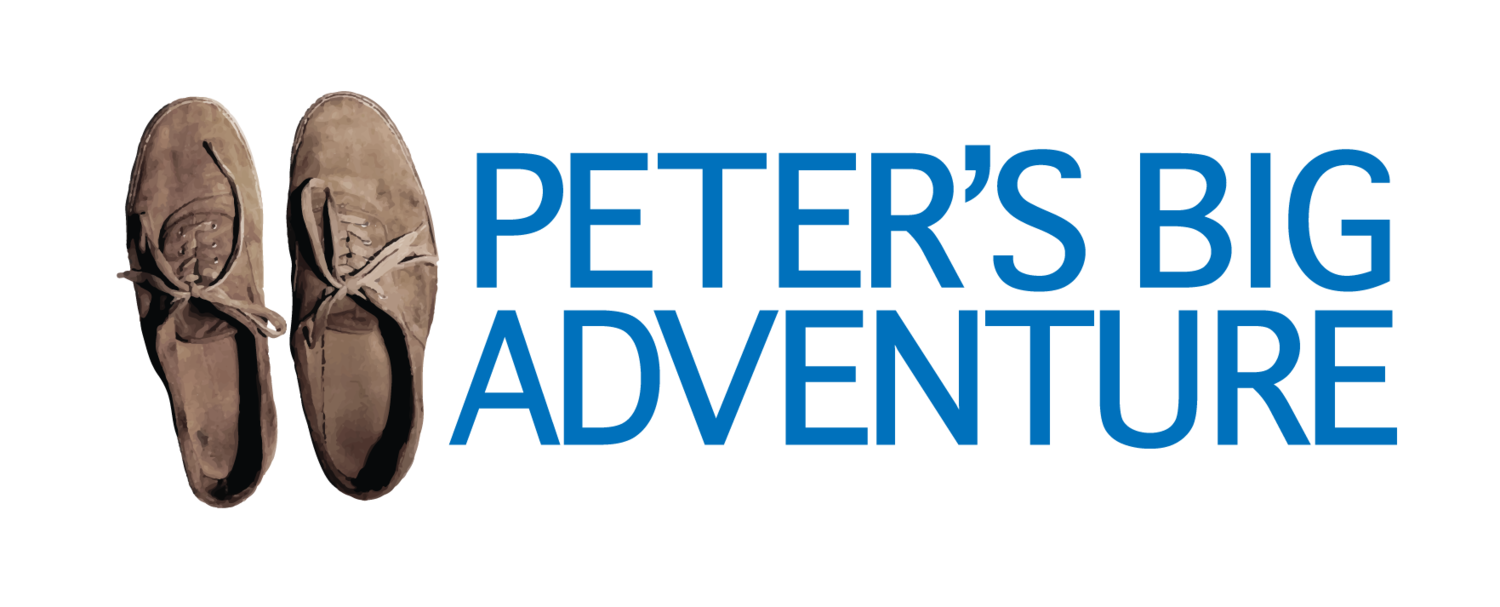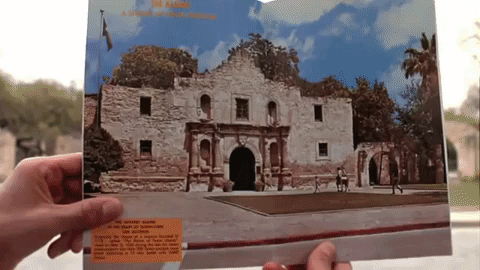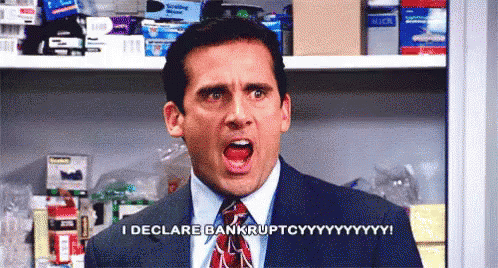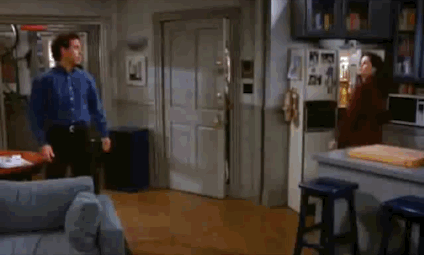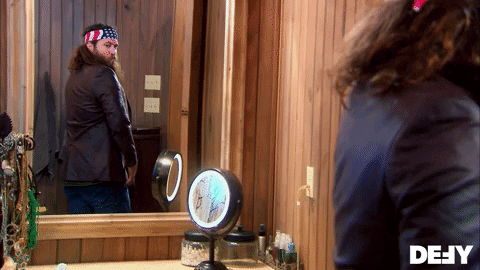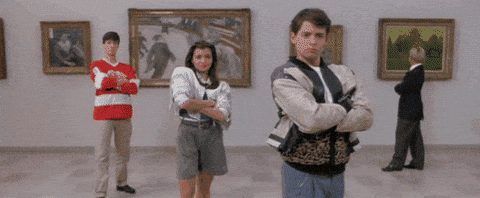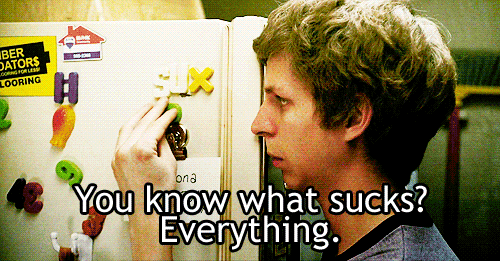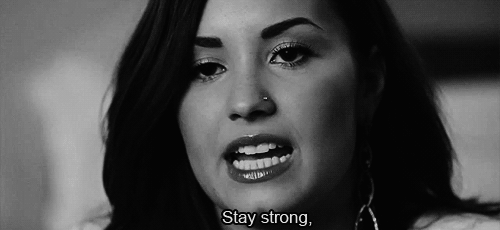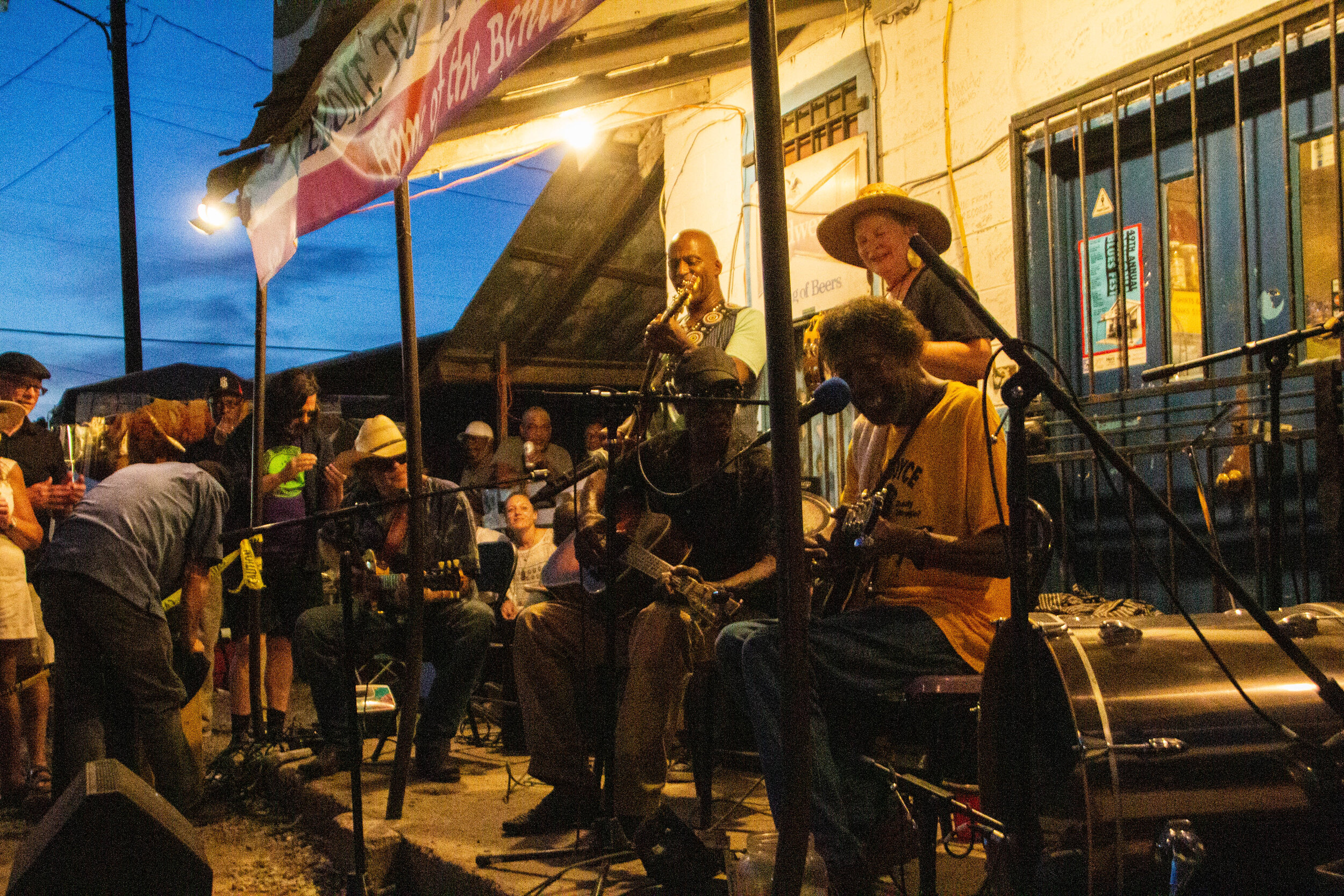Dunno if anybody will read this, but I have learned so much about this subject that it seemed like a shame not to write it down.
If you’re considering making the jump to Nashville to try your hand at music, then this is for you.
I should start with one massive disclaimer: I am not now—nor was I ever—a “rock star,” so if you want to write off my advice due to the modesty of my success with this endeavor, I’d understand. But I would have killed (metaphorically) to get this information from somebody like me when I first showed up in Nashville. This is gonna be some insider shit. It’s definitely for a niche audience, but in order to make this useful to as many people within that audience as possible, I’ve tried to strike a balance between being super specific and tactical vs. general and evergreen. So this article should have a decently long shelf-life. And I can almost guarantee that this information is not written anywhere else on the internet. Or, at least not anywhere easy to find. But then again, this article probably isn’t easy to find either.
Anyway, if you’re interested to check out my resume first, here’s what I did….
I founded and fronted a band called The Great Palumbo. I wrote and self-funded the release of a 25-song catalog that amassed roughly 1.5 million streams across all platforms over the course of ~3 years. I also performed just about every other function imaginable to bring this project to life, from booking agent to art director to business manager. Here’s the link. We got accepted into the mysterious Spotify algorithm at some point and I think the high-water mark was about 80k active monthly listeners. However, that stat is much lower today, now that we’ve stopped pushing. Impressive or not, there are much more well-connected people than me whose projects don’t look anywhere near as good as this in terms of the raw numbers. I’m content with it. 🤷🏻♂️
Before You Move To Nashville
This is where the journey starts. You’re in your hometown and you’re wondering if moving to Nashville is something that you need to do in order to take a legitimate shot at music. Let’s discuss.
What Makes Nashville So Great For Music?
“Nashville is the Alamo.” That’s the best way I’ve heard it put.
They call this place “Music City” for a reason. Nashville has made a good business out of creating a version of this that tourists can interact with. When you arrive at the airport, there are live performers singing country songs in the airport Applebees for all to hear. (I’ve heard that it’s a pretty well-paying gig, relatively speaking.) And then there’s the cash cow known as Broadway, full of Honky Tonks with live cover bands playing ‘round the clock. It’s easy to see why out-of-towners love it. For most people, this is enough to make them feel like they got what they paid for in Music City—and that’s great for them. But if you’re serious about taking a shot at music, you should know that the Broadway circuit will typically not take you far in terms of your career. Don’t get me wrong—these are well-paying gigs with some world-class musicians, but a paycheck and some sparse networking opportunities are probably all you’re going to find here. As far as I can tell, it’s not at the bottom of any discernable career ladder, so—in my humble opinion—your time is better spent elsewhere.
The real Nashville music scene is far less flashy, and it’s definitely not going to come find you. You have to go out and find it. And once you do, the further into it you venture, the bigger you will realize that it is. It’s like you’re walking through a smoky room, with your hands out in front of you looking for the walls, and every time you think you are about to find one, it just keeps going and going and going. Once you get yourself into the right circle, it will start to feel like EVERYBODY is involved with music somehow. Music doesn’t just happen in Nashville—it IS Nashville. On a per-capita basis, more music comes out of Nashville than any other city on the planet, BY A LOT. And there’s a reason for that.
Nashville is one of America’s historic music industry towns, and it is perhaps the only remaining place where somebody can truly show up with only their guitar and a few dollars in their pocket and make the music thing happen. Prices are rising fast, so this becomes less true every day… but relatively speaking, you can still afford to live in Nashville. To quote Ben Folds, who spent some time recording in Nashville early in his career, “If you are failing in Nashville, at least your standard of living is nice. Nashville is a nice way to fail."
So, this is where the starving artists are making their last stand. And that’s why it’s the Alamo.
And why is it good to come to the Alamo?
First, there’s no mob of angry Mexicans coming to murder you like what happened in the real Alamo. So that’s a plus.
But in all seriousness—the short answer is that you can find what you need here to create world-class art. Need an amazing mix engineer? Or an incredible drummer? Or a music lawyer you can trust? Fill in the blank. After you’ve spent a couple of years entrenching yourself in this world, literally ANYTHING you might need is just a text message away. That’s where I am now. People text me asking for the hook-up for these things. And I am always happy to make the referral because that’s how Nashville works. So there is no excuse for anything to be sub-par. The most talented people in the world are relocating here to work on YOUR record. That not only creates opportunity but also pressure to be better. I have created better things here than I ever thought I would be able to, and that is all thanks to the magic of being in Nashville.
How much does it help to be in Nashville (or an Industry Town)?
This is a question that elicits all kinds of different answers. I have a perspective on this, but I will try to just give you the facts in as unbiased a way as possible.
First off, although Nashville has something to offer everybody who is musically inclined, it’s not the “mothership” for ALL genres. For example, if you want to get involved with hip-hop, EDM, or reggaeton, Nashville is probably not the move. Nashville really starts to make sense as soon as you venture into (broadly speaking) the folk, rock, pop, blues, and country spaces. Once you get into this ballpark, you’d be amazed at what a wide breadth of musicians call Nashville home. Being here is pretty much mandatory for anybody in the country world, but Nashville has TONS happening outside of this genre that is not exactly advertised. I think one of my most surprising discoveries was that some of the guys from Korn live here. LOL.
So, when I say “music,” these are the categories I am talking about. Making any written statements about genres makes me cringe because genres aren’t real, but I think a bit of triage is necessary early in this article.
So, do you NEED to move to Nashville to pursue music?
No. Lots of cities have cool music scenes of their own, and if you already live in one of those places, there is definitely something to be said for just starting where you are. Having a community and a support system around you will be VERY helpful in this endeavor, both emotionally and logistically. And if you’re doing the artist thing, most major metro areas have examples of notable artists who are “alumni” or even current residents. So, there’s that. If you feel like you are already well-positioned to build something cool right where you are, go for it!
However, what I will say is that if you start to have some success in your endeavors, you’re going to end up with a lot of reasons to be making trips to Nashville (or your nearest industry town). If you are successful enough, you will likely get to the point where you are having to split your time. It can get to be such a hassle to always be hauling ass back and forth from this place that my music friends who don’t live here are often seriously considering making the move. Some do, some don’t. But they would all agree that it would make a ton of sense.
What Qualifies as an “Industry Town” in music these days?
When it comes to music, there are 2 true industry towns in America: Nashville and L.A.
New York and Austin also have some infrastructure, but nowhere near the level of Nashville and L.A.
And then, of course, there are lots of other great scenes out there in places like Seattle, Chicago, etc., but the criteria for being considered an “industry town” is not how much music is made in that place, but rather, how much supporting commercial infrastructure exists in that place. These would be things like labels, management, booking agencies, PROs, studios, engineers, producers, touring musicians, the list goes on! That is what makes a city a hub.
What Should I Do Before I Make The Move?
The music has to be there first. Unless you are going to music school in Nashville (i.e. Belmont, Black Bird Academy, etc), then Nashville is not the place to learn. You should do that wherever you are now. Nashville is the place you come to put your skills to the test and shoot your shot. If you’re a songwriter, you should already be writing radio-worthy songs. If you’re a producer, you should already be able to make songs sound like they belong on the radio. If you’re an engineer, you should already feel comfortable setting up and running at least a small-to-medium-sized studio. If you’re a gigging musician, you need to be stylish, sociable, professional, versatile, and DAMN good at what you do. If you want to work on the business side, you had best be ready to squeeze into some stylish pants and network your ass off for the rest of your life. And if you’re an artist—honestly that might be the toughest one of them all—you’ll need to be a killer songwriter, also pretty good at most of the rest of the things on this list, and have a VISION.
I think that moving to Nashville will bring with it a lot of growth, both as a musician/artist, but also as a person. However, I don’t recommend entering the race until you already know that you are competitive.
Once You Get To Nashville:
Things You Should Know
Okay, so you have made it to Nashville. Welcome.
Here are a few things that you should know before you wade into this pond…
1. Nashville Is—Above All—A Community
The Nashville music scene/industry views itself as a community. You’re going to need to really internalize the implications of a community-oriented dynamic and act accordingly because this is how Nashville works. Things in LA might be a bit more transactional, but Nashville is different. If you’re in Nashville, never EVER utter the word “networking” within earshot of anybody that you might be even remotely interested in networking with. If you want to network with somebody, find a way to get into a conversation with them, and then talk about ANYTHING but music. Make friends with them. And I don’t mean this in a manipulative, self-serving way. Do your best to legitimately become their friend—and they yours. You need to buy into the community.
That means buying people coffee. It means showing up when invited. It means genuinely sharing your life with people. And, perhaps most importantly of all, it means spending the time and money to go to their shows. I will credit some of my favorite stage banter to a friend of mine who—from stage—once said to the crowd, “Thank you all so much for coming out tonight! It really means a lot, and I want you all to know that… I understand the social contract we’ve just entered into… I’ll come to your show.”
2. Nashville Is A Small Town
This is an important thing to know! It might not seem like it, but once you actually live in Nashville, you will see that this place functions like a small town—at least when it comes to music. The sixth degree of separation here is more like the third degree of separation. Everybody knows everybody. Once you are “in the scene,” you will start seeing the same people everywhere you go. And when you get to know somebody new, you’ll discover that they somehow already know half of the people that you know.
Paradoxically, there is a nearly endless amount of things happening here, which makes the small-town dynamic all the more important. Once you start to get to know people, you will find yourself in either a positive or a negative feedback loop, which leads me to my next point.
3. You Need to Be a Good Person
So we’ve established that Nashville is a small town.
Well, if the fact that being a good person is just the right thing to do wouldn’t have convinced you, be aware that you will have a reputation. You want to have a reputation for being a good person because almost anything worth doing in Nashville runs 95% on referrals. There were a few years where I was pretty darn prolific in Nashville, and for better or worse, I don’t think I ever did a cold call even once. As an artist, if I needed something, I wasn’t getting on Google. I was going to text or call somebody that I trusted. And I definitely was not going to hire anybody who hadn’t already done something that I liked elsewhere, either for a friend or as part of a project that was easy to track down and verify on Spotify, Instagram, etc.
At this point, you might be thinking to yourself “Ok Peter, but that doesn’t help me if I don’t know anybody right now. How do I break into the scene?”
4. You need To be omnipresent
In section #1 I said that you’d need to buy into the community. If you’re already involved with music where you are now, chances are good that there are already connections to Nashville and L.A. in your current circles. Many of my friends in Nashville were able to skip a few steps in the beginning because they had already established themselves elsewhere, so they were able to plug into a community here in Nashville quickly and seamlessly.
That was not me. I came here and basically started from scratch. So how do you break in?
Well… in the beginning, it looks a lot like the movie “Yes Man.” Put yourself out there. Accept every invitation. Take every opportunity. Befriend every person you can. The opportunities to say “yes” may feel sparse in the beginning, but that will give you the time to start cultivating an important character trait: omnipresence. You need to make your presence known and weave yourself into the social fabric of Nashville as quickly and as thoroughly as possible. And that means that you need to be out ALL. THE. TIME. The Basement does two shows a night. Go to both! Make a friend at each! Oh, and the same goes for social media. Be active, whatever that looks like for you.
Does that sound exhausting and expensive? CHEAH, IT FUCKING IS. But the good news is that this will become less important as you move through time and find your crowd. At the end of year 1 in Nashville, your calendar should be full of random shows and events that you want to show your face at. By the end of year 3, it will be parties, kick-backs, and events that are of a more private and intimate nature. It’s a natural progression as you begin to plug yourself in, but it’s important to keep that principle of omnipresence as your north star. Things will go better for you if people feel like you are familiar. And that means you have to show up.
5. Money, Part 1: funding Your project
I am going to focus the next 2 sections on artists specifically. Everybody else will presumably be the people who are GETTING paid, for the most part. So this is less complicated for them.
For those brave souls who would identify as “artists,” I have some bad news for you: no matter how you slice it, this is going to be expensive. You probably already know that, but if you don’t, just wait.
Now that I have been around the block a few times, I have learned that 90% of people in Nashville (and even more so in L.A.) who are seriously pursuing the artist thing generally fall into 1 of 2 categories:
They come from money
They are POOR
I think I was in that 10% who had neither a trust fund nor an impending bankruptcy—the vanishing middle class!—but that was because I chose to get a “real job” on the side to foot the bill. And the trade-off that I made there is that I was working 24/7 for years, with no end in sight. And I was pouring all of my earnings into music. But I was prolific during that time, not because I wrote more songs than anybody else (if anything, I wrote less because I was stuck at a job 45 hours a week), but because I could actually afford to record the songs that I did write without a Kickstarter campaign. So I would leave work and go straight to night sessions to piece my songs together after hours until we all got too tired to do good work anymore.
In retrospect, I’m not sure if I would recommend this strategy. There’s only so long that you can do 2 things at a time. If I were to go back and do this again, I might focus instead on just getting as self-sufficient as possible with recording so I could do most of my recording on my own. That would be a slow start and would require a whole bunch of different start-up expenditures, but after a few years of focus, you could really crank songs out!
The truth is that most people who “make it” as artists without some serious bankrolling can do more than one thing well. The most common and useful dualities that you’ll see are people who are both artists and (a) producers/engineers, (b) session players/multi-instrumentalists, or (c) songwriters with pub deals. It’s no coincidence that these people were also typically VERY connected and embedded in the community. They literally do nothing but music. And that is the dream, right?
HOWEVER, I have other friends who did all sorts of other things to foot the bill for their artist careers. There is no “right way.”
6. Money, Part 2: Paying your People
No matter what situation you think you’re in, I would encourage you to internalize the following as quickly as possible.
If, for whatever reason, somebody is working on your project for free, you are in dangerous territory.
Relationships are the most valuable thing you have in Nashville, and nothing will sour them as consistently as free labor. People may offer their services for free because they themselves are trying to break into the scene. You might even feel like there is strong social pressure to accept these offers. I have been there and I speak from experience when I say: swim at your own risk.
There are two sets of considerations here that I want to highlight.
First, there are ethical (and reputational) considerations.
Setting aside the fact that people don’t tend to put in as much effort if they’re not being paid, the simple truth is that unpaid labor is just wrong. This is one of the quintessential hang-ups of a career in the arts: everybody thinks artists should work for free. To give you an example—a few years ago, McDonald’s got into some hot water at SXSW when they were asking artists to play at their showcase for free. Never mind the fact that McDonald’s has nothing to do with music—they’re also a massive corporation that could have 100% afforded the meager wages of touring musicians. One band that received an offer from them was Ex Cops, who published a scorching open letter about it. The point is, people who work in the arts are very familiar with the paradigm of their work being undervalued, or not valued at all.
“But Peter, I’m not a big bad corporation—I’m just a poor musician trying to make beautiful music!”
Doesn’t matter. From the perspective of the people working on your record, no matter how much they might like you as a person and believe in your project artistically, to them this will fall squarely in the category of unpaid work. This is a well established dilemma that existed long before your arrival in Nashville, and will remain long after your departure. Your project will not be the exception to the rule.
Second, there are business considerations.
When managers and labels come into the picture, one thing that they will commonly do is make all of the contributors on your records sign work-for-hire agreements. They do this because, when a song blows up and the money starts flowing, there can be no question of who should be getting paid. If people provided free labor in service of a recording that gets 100 million plays on Spotify, there is a good case to be made for why they should be getting points on your masters. If you’re working with friends, it can feel icky to deal with money and paperwork in what was supposed to be a safe, creative space, but if you’re not prepared for success… then what the hell are you even doing?
The system I eventually arrived at was that contributors to my records would be offered a choice:
Be paid a 1-time fee as an independent contractor, with services provided treated as “works made for hire”
Become an equity owner by chipping in to pay for the upfront costs of the recording—this would guarantee a split of the proceeds generated by the masters proportional to the original contribution
There was no third option. If you worked on one of my records, there is no scenario where money is not entering or leaving your bank account. Sorry. Did I mention that I’m leaving Nashville to get an MBA? 😂
All that being said, compensation can take many forms. It’s okay to get creative. But it’s not okay for the flow of services and capital to be going in only one direction. Be a good person. If you’re not, the community will know.
7. You Need To Pay Your Dues
After maybe a year of living in Nashville, a music friend of mine (who had been around longer than I had) told me that Nashville works in “classes.” And I mean that in the freshman/sophomore/junior/senior way. Think back to the dynamics between people of different grade levels in high school. People are moving to Nashville all the time—anybody who arrived within a year of you is your “freshman class.” People who got there a year ahead of you are in their “sophomore year” and so forth. Of course, there are some exceptions to this. Some people come in with the right friends and get to skip a few grades.
It’s not a perfect paradigm, but it helped contextualize my world when I was early in my Nashville days. It’s easy to show up and wonder why you’re not as plugged in as other people seem to be, and that can make you feel bad about yourself. But when you realize that you’re comparing yourself to upperclassmen, it’s a different equation. They aren’t special, they’ve just been at it longer than you. You’re gonna get there if you put in the time.
8. You Need to Stay Focused On Your Craft
I don’t want to make it sound like this is all a competition because there is definitely room for lots of different people to succeed—BUT—there is inherent relativity to all of this. Songwriters here are churning out 7+ songs per week, month over month, year over year, and when they show up to play writer’s rounds, they are going to have a lot to choose from. If you’re sitting next to them in that round, you had better bring your fucking A-game, because you will not be able to hide behind the natural subjectivity of art. Personal tastes aside, it’s petty easy to identify whether or not a song is well-crafted. They may not say it out loud, but everybody in the room will have an opinion, and they’re usually in 95% agreement in terms of the quality of what they are hearing.
Remember, Nashville is the South—so everybody is very polite. Nobody is going to tell you that your song was bad. If you approach somebody about collaborating in some way, they’d have to be a real asshole to give you an outright “no.” They’ll tell you that they are too busy, or that you should circle back next month. Enter the concept of the “Nashville ‘No’.” I was a bit resistant to this idea when somebody first explained it to me—because I wanted to believe that the producer who just told me that they might have time to work on my project next summer was being sincere with me. And maybe—in their heart of hearts—they really did want to work with me next summer… but I think we both knew that it wasn’t going to happen. The “Nashville No” is essentially the absence of a ‘yes.’
Let me tell you—if somebody is enthused about your music, they will make it work. Whatever “it” is, they will make it happen. You may not even have to ask! If the music is there, doors will open.
That is why one of THE most important elements in all of this is that you stay focused on your craft. Whatever you’re doing, you have to be really fucking good at it. If your musicianship and artistry do not come first, the rest of this list is UTTERLY MEANINGLESS.
9. You Need To Know Who You Are
Let’s get a little deeper than just your musical execution abilities and talk about art more philosophically.
Art is—in some ways—the most important thing in the world. Because it actively gives meaning and context to the lives of billions. Art helps people learn about themselves. People will use art as a point of reference to understand and define their own identities. Sometimes people go even further and build their entire understanding of themselves around a piece of art that they really connected with, often for reasons that they can’t fully explain.
I think we’ve all felt that feeling at one point or another: that song that just transports you to another space and helps you imagine a new reality for yourself. Or that movie that left a hole in your life after it was over. If you’re the artist, this is kind of a strange thing to contemplate. You are a creator of worlds. Most people will only ever be on the receiving end of this. They choose which “worlds” they want to live in, as consumers.
But what is it like to be on the other side of this? Creating something from nothing is immense. And it requires a powerful internal compass from its creators. It’s easy to get stuck looking at your work through a comparative lens, but if you find yourself in this place during the creative process, you’re losing the battle. You need to be confident and proud of your artistic identity, and you need to focus on your own artistic sense of direction at the exclusion of all else. That’s how art that is truly original comes into being. You need to understand your own identity and figure out ways of expressing that identity that are truly your own. That’s the bread and butter.
In the context of your Nashville journey, you will encounter a lot of talented artists who are not only virtuoso musicians who have mastered their craft… but also true originals. True originality draws people in like the Death Star’s tractor beam. It’s got its own gravitational field. Nashville is crowded with competing gravitational fields. As an artist trying to establish a compelling identity of your own, it can be super disorienting.
You need to put your own gravitational fields out before you find anything in your orbit. And in order to do that—especially in the midst of all this noise—you first need to know who you are, as a person, and as an artist.
Of course, back to #8—this doesn’t help nearly as much if you aren’t a good enough musician to execute your ideas in a compelling way. You still have to stay focused on your craft!
10. You’ve Got To Think Bigger Than Just Nashville
Nashville’s music scene is a whole world unto itself. And with such big names in the mix, it’s easy to get seduced into thinking that this is the whole ballgame. Well, if you fit neatly into the Country or Americana world… then yeah, being the king or queen of Nashville might actually be the whole ballgame for you. But for everybody else, you need to be careful that you don’t lose perspective on why you came to Nashville in the first place. It’s incredibly useful to be located here, but that doesn’t mean that you have to embody everything you see happening around you. If pedal steel is not your vibe, then resist the peer pressure to include one in your next arrangement!
Again, back to my previous point on knowing who you are as an artist—it’s totally OK to feel like you’re not a perfect fit for Nashville. That does not necessarily diminish its utility. Sure, Margo Price has murals with her likeness around the city, but she is also the perfect embodiment of modern Americana. If that’s not your thing, then your goalposts are going to be different.
In fact, one perplexing thing about Nashville that I should probably highlight is just how difficult it is to sell tickets to local shows. As I alluded to in point #1, if you are a smaller artist, most of the tickets sold to your shows are probably going to be purchased by your friends and acquaintances. And if you’re in the music world, those people are going to have busy calendars in the evenings. If they aren’t playing a show at the same time as yours, out on tour somewhere, or working their side job as a waiter or bartender, chances are good that they have more than one invite to other peoples’ gigs the same night as yours. Interestingly, if you specialize in a genre of music not typically associated with Nashville—like Hip Hop or Hardcore, for example—playing shows here is really just like any other city. However, for the rest of us, it is HARD to fill a room in Nashville. And if you do manage to fill a room, you should be aware that the crowds often behave differently than they do elsewhere. You might be hoping that the crowd will cheer, sing along, or generally just create an environment of obvious shared enjoyment. Don’t get your hopes up. When you’ve got a crowd full of people that are also in music or are close enough to the music scene that they go to indie artists’ shows on Wednesday nights, they tend to be pretty quiet. Whether they intend to or not, they are likely watching your show with a more academic lens than you are used to. Actual footage of a Nashville crowd below to help you visualize.
This can naturally be really discouraging. But do not despair! Nashville is just one city, and for most indie artists, it’s an anomaly. You need to be thinking bigger than just Nashville. The advent of the Internet age has democratized the music space in many ways. Your job is not to find a way to get the city you happen to live in to embrace your music. Your job is to find the people who connect with your music, wherever they may be. There should probably at least be a few of them in your city, but even if you’re Luke Bryan, the majority of those people are still not going to be in Nashville. It’s a big world. That is why people tour.
And, because of its geographical location, Nashville is GREAT for touring. It’s just a short 3-hour drive from no less than 7 major metropolitan areas. Atlanta makes 8 at 3.5 hours. Couple that with the abundance of the infrastructure and talent needed to make a commercial-scale tour happen, and it’s easy to see why so many non-Nashville artists base tours out of here. Music City makes a great base camp for any regional expedition.
There’s a lot that I could say about this, but the headline is this—Nashville is just the kitchen; it’s not the restaurant. Don’t turn yourself into something more Nashville-friendly because you think it will open doors locally. Because Nashville is not real life. What really opens doors is building a fanbase, whatever that looks like for your particular brand of artistry. And that starts with #8 & #9.
So you need to be thinking individualistically, on a national/global scale. And you need to have a definition of what success looks like that is as unique as your music. Cue my next point.
11. You Need to Define what success looks like to you
When an artist has some "buzz” going, you’ll start hearing people say things like “I think they’re gonna make it!”
I have had some hilarious conversations talking to people about what it means to “make it” in music. It means something different to everybody. Some people want a pub deal or a record deal. Some people are less concerned about being accepted by gatekeepers and just want to financially support themselves solely through music. Others have very specific bucket list items, like playing Coachella. What is it that YOU are trying to accomplish? I would encourage you to write down some specific goals for yourself sooner rather than later.
While you’re at it, write this down too: “COMPARISON IS THE THIEF OF JOY.”
Once you find your way into the proverbial jet stream, there are going to be people around you who are making big things happen. Often. And while I want to emphasize that you should always be celebrating and supporting your friends who are in the trenches alongside you… sometimes it’s discouraging. Sometimes it feels like everybody else is doing awesome and you’re doing terrible. I have been there.
This is the problem with social media—it tricks us into comparing our day-to-day reality to everybody else’s highlight reels. Somebody is always playing a sold-out show. Somebody is always landing a major sync placement. Meanwhile, you’re stuck working a job you hate so you can make rent. I remember one morning I was arriving at my terrible day job when I opened Instagram and saw that a friend had played with the headliner at the O2 in London the night before. Meanwhile, I was drinking gas station coffee in a run-down office building in Madison, Tennessee.
There’s a lot that I could say on this subject, but I’ll keep it simple. You need to run your own race. And in order to do that, you need to define your goals for yourself. After that, put the blinders on and get to work.
12. You Gotta Hang In There!
I’m not going to sugar-coat it. This is HARD. In my opinion, this is one of the hardest endeavors you could possibly undertake in life. And the more creative your role, the heavier the emotional toll it will take. There is a very specific kind of weariness that I feel from touring artists and the like. Maybe I am one of the few that can pick up on it, because I have literally been there, but I can feel it when somebody is really grinding. It’s tough.
So, if you’re going to do this, you should know that it’s going to take a LONG time. This will be your life. You’re going to need to double down at every turn and devote many, many years of your life to this, and there’s no guarantee that you will get where you are trying to go. It’s a risk.
To be totally honest with you, this is the item on the list that heralded my exit from this world. I got to a point where I could see far enough up the ladder that I had a pretty good idea of what it would look like to really succeed, and I couldn’t envision that life making me happy. So I decided that I couldn’t invest more time or money into this.
Meanwhile, as my path has diverged from this track, my friends are hanging in there, and although they are making some real strides, it looks different for each of them. Some have gotten record deals. Others have gotten pub deals. Some have gotten cuts with major artists. Some of them have upwards of 1 million active monthly listeners on Spotify. Some of them have their names in medium-sized print on posters of festivals like Bonaroo, Austin City Limits, etc. Some are playing a cool batch of SXSW showcases this year. Some of them have toured Europe, Australia, and South America. Some of them are even playing arenas in one form or another!
I’d like to think that I had it in me to achieve similar things, but I am cashing out and leaving Nashville. I’ve lived with the decision for a little while now, and I feel like that is the right thing for me. And I am leaving with no regrets because—re: #8—it really was about the art for me. I made some art that I am really proud of.
If you heed this advice, you WILL get somewhere cool. It just might take a while, so you’ve got to hang in there. You got this!
So this is where I get off! I am leaving Nashville and going to grad school in the next couple of months. It’s been quite a ride. I have struggled here, but I also created things that I will be proud of for the rest of my life. I am beyond ready to get out of this place, but I wouldn’t trade my time here for anything. It’s time for me to say my farewells. But I will keep making music forever, no matter where I am in life.
I will leave you with a song from a buddy of mine here in Nashville that I always felt was particularly potent when it came to what it’s like to pursue this. It’s got like 2,000 plays on Spotify, but if you ask me, it deserves a whole lot more.
